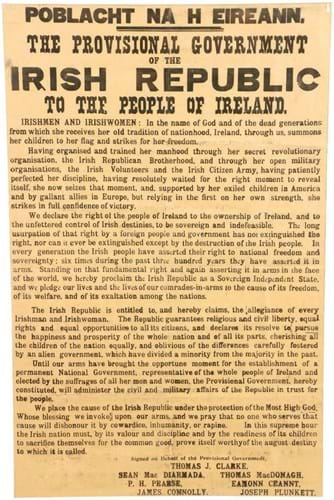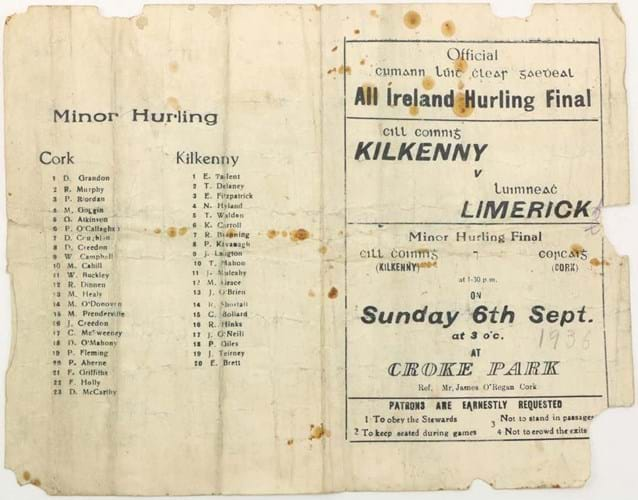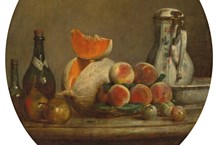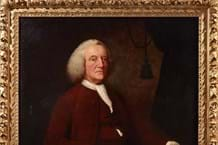
Sold at €170,000 (£146,550), the star turn at Fonsie Mealy was an example of the broadsheet proclamation of the establishment of an Irish Republic, 1916
Billed as the most important document in the country’s history, a copy of the broadsheet Proclamation of an Irish Republic printed on Easter Monday, 1916, and read from the steps of the General Post Office on O’Connell Street, Dublin, on the following day, was the prize lot in a December 6-7 sale.
Offered by Fonsie Mealy (23% buyer’s premium) of Castlecomer, Co Kilkenny, it is one of the few known surviving copies.
Printed on poor paper and showing some smudging and uneven inking, as well as a few minor tears and creases, it still sold at €170,000 (£146,550) against an estimate of €140,000-180,000. This copy was purchased by the vendor some years ago from a leading Dublin book dealer.
Limited print run
A print run of 2500 copies had been planned using an old Wharfedale printing machine at Liberty Hall but difficulties encountered in terms of dilapidated machinery, paper scarcity, etc, said the cataloguer, make it likely that no more than a thousand copies were printed.
The number of copies that have survived to this day is reckoned to be only 20 or so, most of which are already in institutional hands.
As recently as July 2020, Whyte’s of Dublin sold a copy for €190,000, while in 2015, at Sotheby’s, another reached £250,000, but the record was set way back in 2004, when a copy offered in the Dublin salerooms of James Adam was bid to €390,000.
I like your Tone
Other highlights of the auction included a copy, evidently once part of a larger collection of pamphlets, of Wolfe Tone’s An Argument on behalf of the Catholics of Ireland of 1791.
Bearing a presentation inscription in his hand on the title page, it sold at €10,000 (£8620). Tone’s revolutionary tract argued that Catholics and Protestants alike should unite to break their connection with England, which he saw as the “…never-failing source of all our political evils”.
It was billed by the saleroom as the most important Irish pamphlet issued during the 18th century, and the only known copy to bear an inscription in the author’s hand – though not his signature. It is simply signed ‘A Northern Whig’.
Also bid to €10,000 (£8620) was a complete ‘First Series’ set of the 84 issues of Jack B Yeats’ A Broadside from the years 1908-15.
Published in runs of only 300 copies by the Dun Emer & Cuala Press, each issue comprised four pages (a single folded sheet of heavy paper) and included two, sometimes three hand-coloured drawings.
Sold at €16,000 (£13,795) was a letter sent to a friend, Thomas Pugh, by James Joyce from Belgium, where he was on holiday.
It was one requesting help in obtaining illustrations for various publishing projects. Among them were some for the use of Henri Matisse, who was working on a new deluxe edition of Ulysses, but though images were duly supplied by Pugh it seems that Matisse never even looked at them, drawing on Greek myths instead for his inspiration.

The rather tatty match programme for the 1936 All-Ireland Hurling Final sold for €6500 (£5745) at Fonsie Mealy.
A very different lot that sold for €6500 (£5745) was a slim, somewhat spotted, frayed and tatty looking programme for a hurling match, the All-Ireland Final of 1936.
Held at Croke Park, Dublin, it was one that saw a Limerick team, known as The Treaty Men, defeat the Cats, or Kilkenny.













